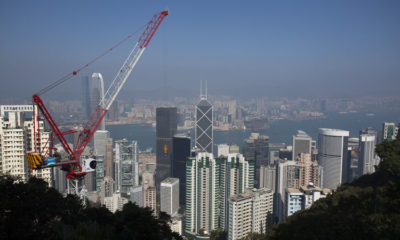- Trump Takes on China in a Twitter Outburst
Weeks before taking office, the incoming American president is riling Beijing with confrontation and online statements that appear to foreshadow a tougher foreign policy toward China.
China woke up this morning to sharp criticism posted by Trump on Twitter, days after Beijing responded to his telephone conversation with Taiwan’s president by accusing the Taiwanese of playing a “small trick” on Trump.
Trump wrote:
Did China ask us if it was OK to devalue their currency (making it hard for our companies to compete), heavily tax our products going into their country (the U.S. doesn’t tax them) or to build a massive military complex in the middle of the South China Sea? I don’t think so!
Personality
That was apparently prompted by China’s response to Trump’s talk Friday with Tsai Ing-wen, the first time an American president or president-elect is known to have spoken to a Taiwanese leader since the US broke off formal diplomatic relations in 1979.
So far, China has avoided responding with open hostility. Today, Chinese Foreign Ministry spokesman Lu Kang said China would have “no comment on what motivated the Trump team” to make the tweets, but said he believed both sides would continue to support a “sound and a stable bilateral relationship.”
“For us, for China, we do not comment on his personality,” Lu said.
We focus on his policies, especially his policies toward China.
China’s reaction to Trump’s call with Tsai was relatively low-key given the sensitivity China places on Taiwan.
The US and Taiwan retain strong unofficial ties, and the US sells weapons to the self-governing island. But American leaders have for decades avoided any official recognition in deference to China, which claims Taiwan as part of its territory, to be captured by force if necessary.
Trump’s reference in another tweet to Tsai as “the President of Taiwan” was sure to inflame China, which considers any reference to Taiwan having a president as a grave insult.
Punish
But China only said it would make a “solemn representation” in Washington, and Lu declined to expand on that statement today.
Instead, China seemed to offer Trump a face-saving way out of an apparent blunder by blaming the Taiwanese.
English-language commentaries then appeared in two state-run newspapers known to be used by China’s ruling Communist Party leadership to send messages abroad.
“Trump might be looking for some opportunities by making waves,” the Global Times said in an editorial today headlined, “Talk to Trump, punish Tsai administration.”
“However, he has zero diplomatic experience and is unaware of the repercussions of shaking up Sino-US relations,” the newspaper said.
“It is certain that Trump doesn’t want a showdown with China, because it is not his ambition, and neither was it included in his promise to the electorate.”
“He puts out feelers to sound China out and chalk up some petty benefits.”
China’s response was characteristically coded. But it now faces an incoming president who deals in outspoken tweets, not communiques.
Not true
Trump used a platform banned by censors in mainland China to renew several of his criticisms during the US presidential campaign. Some of his arguments aren’t true.
Taiwan’s official Central News Agency, citing anonymous sources on Saturday, said Edwin Feulner, founder of the Washington-based Heritage Foundation, was a “crucial figure” in setting up communication channels between the sides.
Vice President-elect Mike Pence yesterday said that the phone call shouldn’t necessarily be interpreted as a shift in US policy. He shrugged off the attention to the incident as media hype.
“It was a courtesy call,” Pence told NBC’s Meet the Press.
Ned Price, a spokesman for the White House National Security Council, said Trump’s conversation does not signal any change to long-standing US policy — although some in Taiwan expressed hopes for strong US support from the incoming administration.
In terms of Trump’s criticisms, Chinese imports are taxed at standard US rates, while Washington has recently slapped painful punitive tariffs on Chinese steel, solar panels and other goods.
And while China once kept a tight grip on the value of the yuan, also known as the renminbi, it now allows it to trade within a bandwidth 2% above or below a daily target set by the People’s Bank of China.
The yuan is currently trading at around a six-year low against the dollar. But economists now conclude that the currency is more or less properly valued in relation to the dollar and other foreign currencies.
Controls
And with economic growth slowing considerably and more Chinese trying to move money out of the country, the government is now spending massively to hold up the yuan’s value rather than depressing it as Trump and other critics accuse it of doing.
It has also imposed strict controls on Chinese moving money out of the country.
China has built up its military and constructed man-made islands in the South China Sea, and made sweeping territorial claims over almost the entire critical waterway. Those claims were broadly rejected in June by an international tribunal in The Hague.
Shi Yinhong, a professor of international relations at People’s University in Beijing, predicted China would not lash out immediately, but calibrate its response over the next several months after Trump enters the White House.
“Trump’s remarks will certainly raise the concerns of Chinese leaders,” Shi said. “But at the moment, they will be restrained and watch his moves closely.”
Calm
Meanwhile, Taiwan has urged China to stay calm after the Taiwanese leader’s unprecedented phone call to US President-elect Donald Trump angered Beijing, as residents and analysts in Taipei expressed fears at the possible fallout.
Ties between Taipei and Beijing have grown increasingly frosty since China-sceptic Tsai Ing-wen took power in Taiwan in May, ending eight years of cross-strait rapprochement.
Beijing has since cut off all official communication with the self-ruled island, which it still views as part of its territory.
Today Taiwan’s China affairs minister Chang Hsiao-yueh urged Beijing to consider the matter with a “calm attitude”. She told reporters:
“The government values ties with [China] and the president has reiterated time and again that Taiwan will not go back to the old way of confrontation… I don’t think there is an act of provocation.”
Tsai herself has made no comment but the presidential office has insisted there is “no conflict” between Taiwan maintaining relations with the US and with China.
In Taipei some said they now fear a Beijing backlash.
“I doubt that a short phone call will help Taiwan that much in the long-term, but it will infuriate China and they will likely take vengeful moves against Taiwan,” said receptionist Hu Chi-hui, 38.
Saleswoman Ho Li-chin, 43, told AFP she fears China will try to isolate Taiwan even more in the international community.
More harm than good
Political analysts said Tsai was gambling that the call would increase her bargaining power with Beijing.
Fan Shih-ping of the National Taiwan Normal University, said Tsai wanted to show Beijing that “giving Taiwan the cold shoulder would drive it further towards the US”.
But as she battles falling approval ratings at home over domestic issues, observers agreed the move was unlikely to significantly improve her popularity – and could damage it further.
“Beijing will not leave the matter at that and this could do Tsai more harm than good, such as prompting Beijing to get Taiwan’s diplomatic allies to switch recognition,” said Tang Shao-cheng, a political scientist at the National Chengchi University.
However, some residents voiced support for Tsai.
“Taiwan has the right to maintain relations with other countries and we shouldn’t look to China before taking our moves,” said pensioner Lin Ji-chen in Taipei. ”Taiwan should walk its own path.”
AFP


 Forex3 weeks ago
Forex3 weeks ago



 Naira2 weeks ago
Naira2 weeks ago
 Billionaire Watch2 weeks ago
Billionaire Watch2 weeks ago




 Naira2 weeks ago
Naira2 weeks ago




 Naira2 weeks ago
Naira2 weeks ago






 Naira4 weeks ago
Naira4 weeks ago


 Naira1 week ago
Naira1 week ago






 Naira4 weeks ago
Naira4 weeks ago





















